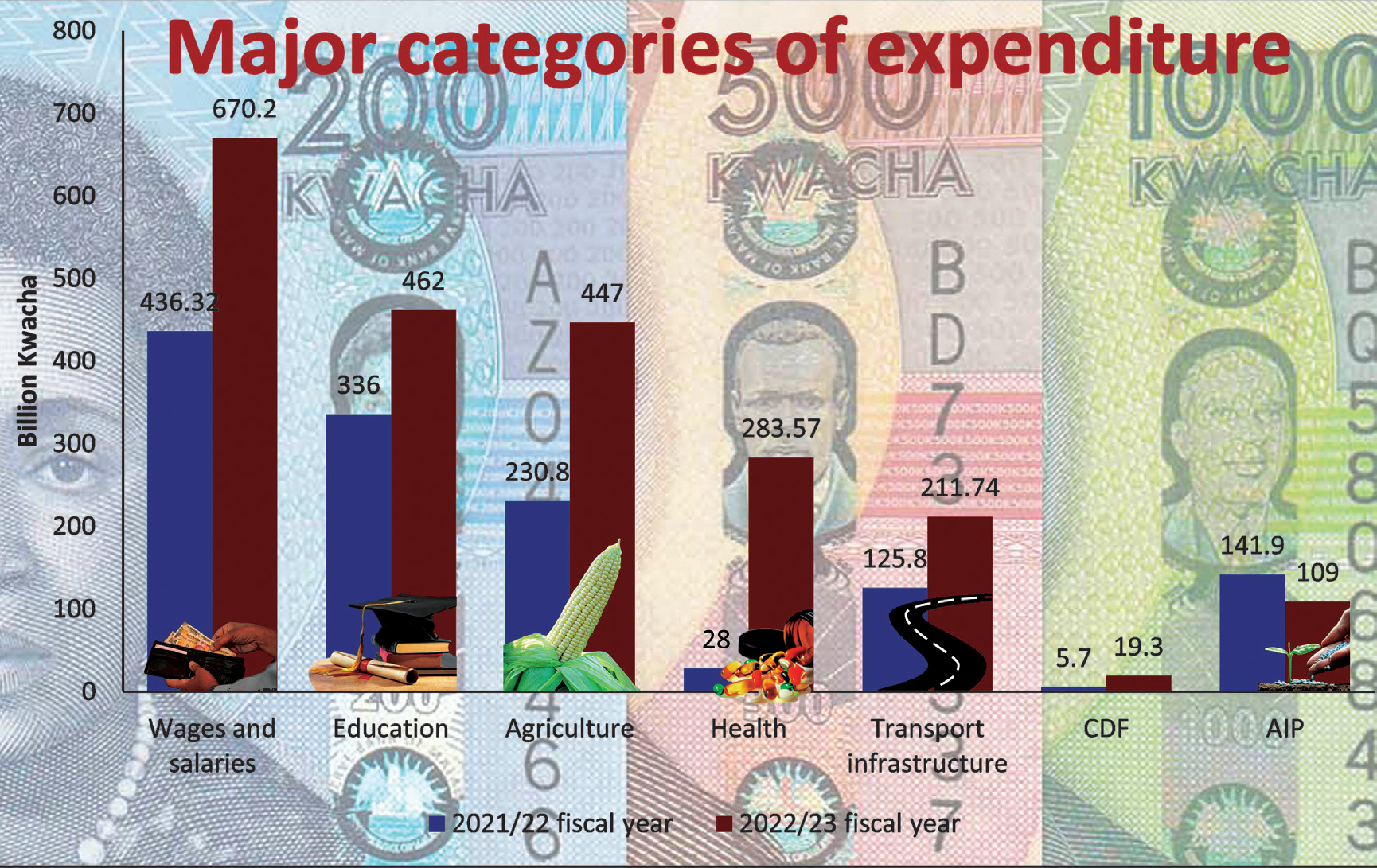The education, health and agriculture sectors have claimed a lion’s share of the 2022/23 national budget which Minister of Finance Sosten Gwengwe presented in Parliament yesterday having jointly raked K1 193.47 trillion, representing a 42.1 percent stake.
But despite the dominance, the allocation falls short of internationally set standards for governments to follow when budgeting for education and health.
The fiscal plan titled Accelerating Implementation towards Wealth Creation, Job Creation and Food Security, has been pegged at has been projected at K2.84 trillion.
Education sector, at K 462.24 billion, has been allocated the biggest chunk of resources. That allocation is K134.94 billion more than the K327.3 billion funds inserted in the outgoing 2021/22 budget.
Explained Gwengwe: “The education sector has been allocated a total of K 462.24 billion. This represents 4.1 percent of Growth Domestic Product (GDP) and 16.3 percent of the total budget.
The funding though falls short of the maximum requirements of the 2015 United Nations Educational, Scientific and Cultural Organisation (Unesco) member states agreement that governments should be allocating between 15 to 20 percent of public expenditure towards education.
“These resources will cater for wages and salaries; operations for primary and secondary schools, technical and community colleges and public universities as well as development projects in this sector.”
The funding will also cater for the construction of primary schools, girls’ hostels, Inkosi M’mbelwa University in Mzimba, Mzuzu University library and science laboratories and libraries in community day secondary schools.
Education analyst Benedicto Kondowe said the funding towards the sector was not enough urging government to ensure it meets the maximum international standards.
“Learners with disability do not have adequate resources, teachers are not enough and a lot of learners are struggling to pay school fees and we need bursaries,” Kondowe, the Civil Society for Education Coalition executive director, said.
The agriculture sector is the second highest earner with its budget increasing from K284.4 billion to K447.66 billion representing 15.8 percent of the total budget.
Gwengwe said expenditure will focus “on wages and salaries, operations, including Affordable Inputs Programme, and development projects in the ministries of Agriculture; Forestry and Natural Resources; and Water and Sanitation.”
In an interview yesterday, agriculture policy analyst William Chadza said he was impressed with the funds allocated to the sector. He however proposed that Treasury cuts down on Affordable Input Programme (AIP), an initiative through which government subsidises farm inputs.
The health sector’s share has jumped from K187.2 billion in the previous national budget to K283.57 billion. This represents 10 percent of total budget.
The allocation falls short of the African Union Abuja Declaration which member states including Malawi agreed to allocate at least 15 percent of their national budgets each year to improving their healthcare systems.
Another sector enjoying a substantial share is the Transport and Information Communication Technology Infrastructure which has been allocated a total of K211.74 billion representing 7.5 percent of the total budget.
The Governance and Rule of Law sector which include the Judiciary, Anti-Corruption Bureau, Office of the Ombudsman, Law Commission and Malawi Human Rights Commission has been handed a total of K61.62 billion.
Across the board, the 2021/22 budget had lower estimates as it is only running for nine months rather than the usual 12 months as government changed the financial year from July 1 to June 30 to one that will be running from April 1 to March 31.
The post Educ, health, agric lead appeared first on The Nation Online.
 Moni Malawi
Moni Malawi 
